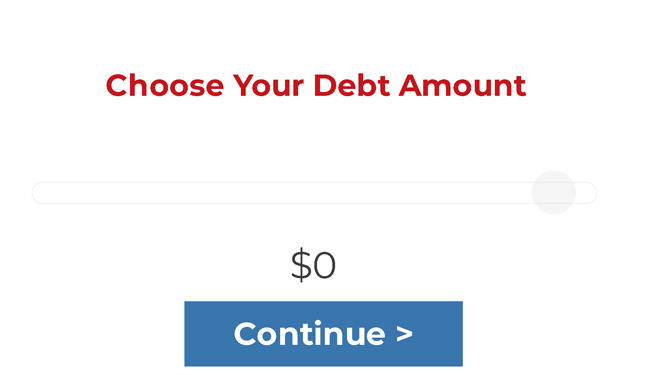Debt consolidation loans can be a great way to get your finances in order. By consolidating multiple high-interest debts into one payment, you can save money and pay off your debt more quickly. If you’re looking to get out of debt quickly, here’s how to get a debt consolidation loan in 5 easy steps:
1. Do a credit score check

Your credit score is one of the most important factors in determining your eligibility for a loan. Borrowers with good to excellent credit scores (690-850 on the FICO scale) are more likely to win approval and get a low-interest rate.
Debt consolidation can be a great way to save money and get out of debt faster. By consolidating your debts into one loan with a lower interest rate, you can reduce the overall cost of your debt and save money in the long run. If you are struggling with high-interest rates and multiple debts, consolidating your debts may be the best solution for you.
If you have less-than-perfect credit (300 to 629 FICO), there are still loan options available to you. Here are a few steps to follow in order to improve your chances of qualifying for a lower interest rate:
Get your late payments caught up
If you’re behind on your payments, now is the time to catch up. Late payments are reported to credit bureaus at 30 days past due, which can have a major negative impact on your credit score. But if you act quickly, you can still make your payment within the 30-day window and avoid any damage to your credit.
Look for errors on your credit report
If you’re concerned about your credit score, it’s important to check for errors on your credit report. These errors can range from incorrect payments to closed accounts being incorrectly marked as open, and they can negatively impact your score. You can obtain a free copy of your credit report from AnnualCreditReport.com.
Pay back your small debts
If you’re looking to improve your credit score, one of the best things you can do is pay down any outstanding debts. Debts owed account for 30% of your credit score, so by paying them off, you’ll immediately see a boost in your score. If you have high-interest credit cards, try to pay those off before consolidating your debt.
2. Make a list of your debts and payments

List all the debts you would like to consolidate—this could include credit cards, store credit cards, payday loans, and other high-interest debts. Add up the total amount due for all these debts combined. This is the amount you will need for a debt consolidation loan.
Assuming you have a budget in place, add up the amount you pay each month towards your debts and see if there are any areas where you can cut back on spending in order to continue making debt repayments. It’s important to find a loan with a lower interest rate and monthly payments that fit within your budget so you can stick to a repayment plan.
3. Compare your loan options
There are a lot of different places you can go to get a loan for debt consolidation. Online lenders, credit unions, and banks all provide personal loans that can help you get your finances in order. Shop around for a personal loan that fits your needs and budget.
- Most online lenders let you compare personalized rates and terms without impacting your credit score. By pre-qualifying, you can shop around for the best deal that works for you.
- Credit unions are not-for-profit organizations that focus on providing financial assistance to borrowers with bad credit. In order to apply for a loan, you must first become a member of a credit union. Many loans from credit unions require a hard pull on your credit score, which can temporarily lower your score.
- Loans from banks are usually more advantageous for those with good credit, and customers who have an existing relationship with the bank may be eligible for a lower interest rate.

There are many lenders that offer direct payment to creditors as a way to simplify the consolidation process. Once the loan has closed, the lender will send your loan proceeds directly to your creditors without any additional cost.
Some lenders offer additional features that can be beneficial, like a discount on your interest rate for setting up autopay, access to your credit score, or free financial education. These are all things you should consider when looking for a lender.
4. Apply for a loan
When you’re ready to apply for a personal loan for debt consolidation, be sure to have all the required documents on hand. These may include proof of identity, proof of address, and income verification.
Lenders may report your payments to the credit bureaus, which can affect your credit score for up to 7 years. Be sure to read the loan document’s fine print carefully for any extra fees or prepayment penalties that may apply, such as late fees, maintenance fees, and origination fees.
If you are struggling to meet the lender’s requirements, you may want to consider adding a co-signer with good credit to your application. This can help increase your chances of getting approved for a loan.
5. Close the deal and start paying off

Once you have been approved for the loan you want, the next important step is to make sure that the lender offers direct payment. This will ensure that your loan proceeds are paid out among your creditors and that your old debts are paid off. Once you have checked your accounts to make sure there is no balance remaining or called each creditor to confirm that the account has been paid off, you can proceed with confidence.
If you find yourself in a situation where your creditors are not being paid, it is important to take action immediately. Repaying your debts with the money that is deposited into your bank account is the best way to avoid additional interest and fees. It is also important to resist the temptation to spend the loan money on other things.
Within 30 days of receiving your debt consolidation loan, make your first payment. This will help you get on the path to financial freedom and begin to improve your credit score.
Which lender is the right one for me?
There are many different lenders out there that offer debt consolidation loans. It can be difficult to know which one is right for you. That’s why Best2020Reviews has compiled the best debt consolidation reviews to help you make the best decision.
We have carefully researched each one of these companies in order to summarize their business practices and help you compare your options and make the best decision possible.
Potential risks of getting a debt consolidation loan
Debt consolidation loans are not always the best option for everyone. There are some potential drawbacks that you should be aware of before making a decision. Here are some risks you may encounter when planning how to get a debt consolidation loan:
- Additional fees. Debt consolidation loans come with a few additional fees that can add up quickly. It’s important to be aware of these before you borrow, so you can avoid any surprises down the road. Origination fees, maintenance fees, late fees, and other charges may apply in some cases. Do your homework and know what to expect before signing on the dotted line.
- Credit score damage. If you’re behind on your personal loan payments, you could be charged late fees and end up defaulting on your loan. This could result in a report being sent to credit bureaus and your credit score being damaged, therefore making it hard to be approved for future debt consolidation loans.
- Interest rates and terms. You have to make sure the interest rate you are offered is lower than your current combined interest rates for it to make sense and help you save money in the long run. Additionally, be mindful of the repayment term you are taking. A longer repayment term means you could end up paying more in overall interest.
- Overspending your loan funds. If you have a loan and access to extra funds, it can be tempting to overspend. This can lead to more debt and financial problems. It’s important to monitor your expenses closely and resist temptation.
Options to consider if your application is denied

If you’re looking to consolidate your debt, it’s important to choose the right lender and loan program. Getting denied for a consolidation loan can be frustrating, but don’t give up hope.
Here are some options available to you:
Request a lower amount
It’s important to approach lenders with a realistic loan amount in mind. By doing so, you lower the risk for the lender and increase the chances of your loan being approved. While you may still have multiple payments to make, a consolidation loan can help reduce the overall amount you owe each month.
Try credit counseling
A credit counselor can help you develop a plan to get out of the red. This plan will include a monthly payment amount that will let you become debt-free over time. Once you agree to the plan, the credit counseling organization will make your payments for you. You just need to make sure there’s enough money in your account each month to cover the payment.
Try a different lender
Different lenders have different criteria for approving loans. Some focus primarily on your credit history, while others may take into account other factors like employment, education, and income. If you have bad credit but look like a good candidate in other ways, you might have better luck with one of these other companies.






